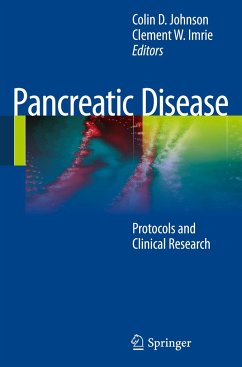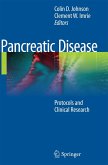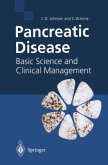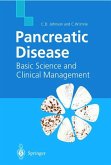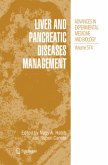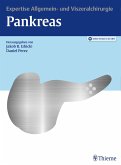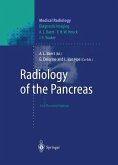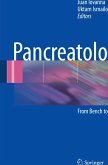This book will contain the conclusions of a meeting from March 2007, of about 25 experts in pancreatology working together in small groups and plenary sessions to define the current state of knowledge in specific areas, and to develop ideal protocols and research questions for future investigation.
Clem Imrie and Colin Johnson This book stems from an unusual meeting held in The Royal College of Physicians and Surgeons of Glasgow in March 2007. Enthusiastic doctors in the diagnosis and treatment of pancreatic diseases were arranged in small groups to discuss specific unsolved/partially clinical problems and suggest the way forward. In some instances, the recommendations were initial improved longitudinal studies, while in others better double-blind randomized st- ies. The recommendations were then presented on the second day before the total 40 plus participants who added their input. Finally, the mechanics of initiating the proposals were arranged. The editors are most thankful to the authors from the meeting, who have ass- bled the various contributions to this stimulating volume. xi Part I Potential Trials in Acute Pancreatitis Chapter 1 Acute Pancreatitis in Intensive Care John Kinsella, Barry Clements, Euan Dickson, Thierry Dugernier, and Martin Hughes 1.1 Intr oductionSevere acute pancreatitis is associated with the development of the systemic inflammatory response syndrome (SIRS). Hypoxemia is a hallmark of acute pancreatitis and respiratory failure is the most common single organ failure in this disease. In the most severely ill patients mul- organ dysfunction syndrome (MODS) and multi-organ failure (MOF) occur. Intensive care with multiple organ support is necessary.
Clem Imrie and Colin Johnson This book stems from an unusual meeting held in The Royal College of Physicians and Surgeons of Glasgow in March 2007. Enthusiastic doctors in the diagnosis and treatment of pancreatic diseases were arranged in small groups to discuss specific unsolved/partially clinical problems and suggest the way forward. In some instances, the recommendations were initial improved longitudinal studies, while in others better double-blind randomized st- ies. The recommendations were then presented on the second day before the total 40 plus participants who added their input. Finally, the mechanics of initiating the proposals were arranged. The editors are most thankful to the authors from the meeting, who have ass- bled the various contributions to this stimulating volume. xi Part I Potential Trials in Acute Pancreatitis Chapter 1 Acute Pancreatitis in Intensive Care John Kinsella, Barry Clements, Euan Dickson, Thierry Dugernier, and Martin Hughes 1.1 Intr oductionSevere acute pancreatitis is associated with the development of the systemic inflammatory response syndrome (SIRS). Hypoxemia is a hallmark of acute pancreatitis and respiratory failure is the most common single organ failure in this disease. In the most severely ill patients mul- organ dysfunction syndrome (MODS) and multi-organ failure (MOF) occur. Intensive care with multiple organ support is necessary.
From the reviews: "This book focuses on evidence-based practice in the treatment of patients with pancreatic disease. It includes studies evaluating treatment efficacy in both benign (acute and chronic pancreatitis) and malignant (pancreatic cancer) diseases. ... It is intended for gastroenterologists, gastrointestinal surgeons, or surgical oncologists who see patients with pancreatic disease. ... This is an excellent book for organizing current studies in pancreatic disease. Specific surgical or endoscopic techniques are ... nicely referenced." (Joseph J. Cullen, Doody's Review Service, May, 2010)

